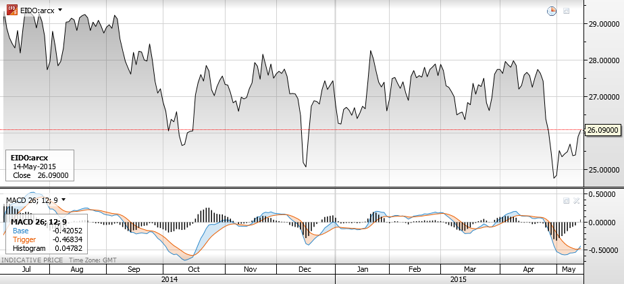How Will Global Uncertainties Impact Indonesian Markets?
For a good portion of this year, the stock market in Indonesia has been met with selling pressure. There is a reasonable basis for this, as we have seen some disappointments in corporate earnings that have led some of the biggest names in the country to trade lower. But there are external events at work, as well. And some of these factors might not be readily apparent to many regional investors. One of these is the sovereign debt situation in the Eurozone.
On the face of it, some might argue that the sovereign debt situation in the Eurozone is an irrelevant factor. But when we look at some of the declines in Indonesian stocks, there are some conspicuous parallels that can be drawn in cases where negative news in countries like Greece, Spain, and Portugal has been accompanied by declines in emerging market stocks. “By many commonly used metrics, we can see that regional uncertainty in the Eurozone has made investors reluctant to park their money in emerging Asia’s equities space,” said Michael Davis, markets analyst at 4K Research. “So as long as global uncertainties continue, we could see sustained pressure in Indonesia’s benchmark stocks.”
With this in mind, it will be important for Indonesian investors to continue monitoring conditions in the Eurozone and to avoid implementing large investment strategies in cases where global uncertainty is rising. This is a factor that is often seen when financial tensions are rising, so it will be important to remember that external factors do matter when investors are looking to buy or sell Indonesian stocks.
iShares MSCI Indonesia Market Index Fund (NYSEARCA:EIDO)

EIDO Stock Strategy: Momentum has been largely negative but investors could look to start buying in at these lower levels as long as there are no significant external events that might weigh on Indonesian stocks.
As a proxy for the Indonesian stock market as a whole, we will look at recent activity in the iShares MSCI Indonesia Market Index Fund (NYSEARCA:EIDO). As we can see, the fund has shown steady declines most of the year, punctuated by the negative headlines that have been generated in issues relating to sovereign debt in the Eurozone. It should not be viewed as entirely coincidental that EIDO experienced strong moves lower in December and in late April, as these were months there discussions relating to the possibility of a Greek exit were seen with greater regularity. So while some investors might argue that there is little direct connection between the debt situation in the Eurozone and in the overall performance of Indonesian stocks, there are some glaring similarities that have become very difficult to ignore at this stage of the trading year.
On Friday (15/05), Indonesia's benchmark stock index (Jakarta Composite Index) fell 0.36 percent to 5,277.10 points.
Jakarta Composite Index (IHSG):
